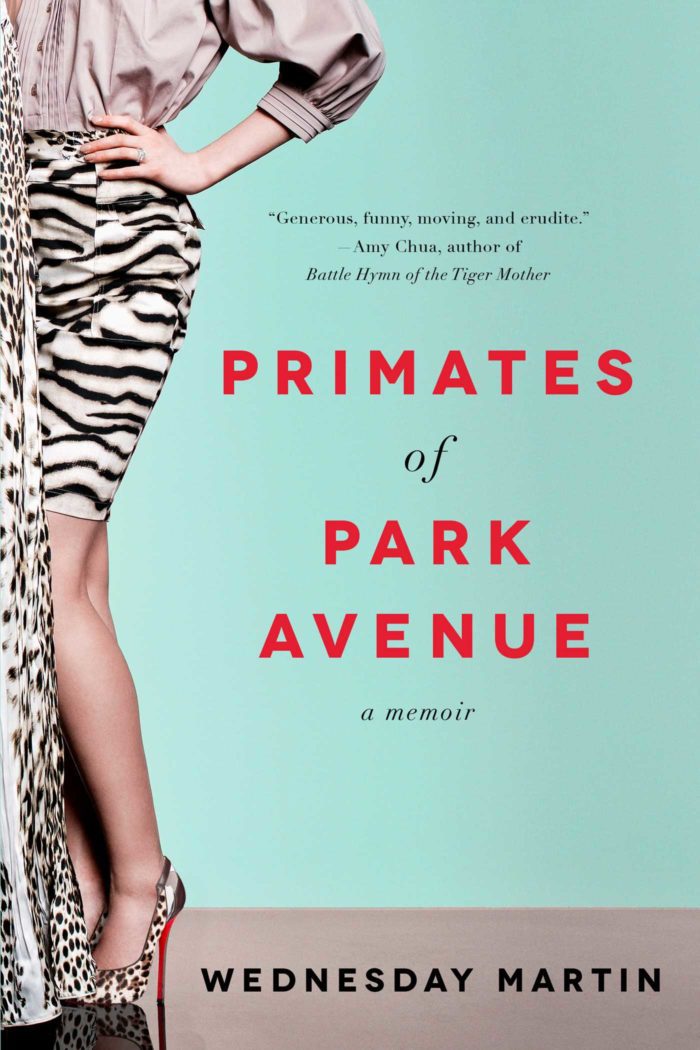Did you happen to read Wednesday Martin’s op-ed, “Poor Little Rich Women,” in the New York Times last month? In it, the author writes about the practice of “wife bonuses”:
“A wife bonus, I was told, might be hammered out in a pre-nup or post-nup, and distributed on the basis of not only how well her husband’s fund had done but her own performance—how well she managed the home budget, whether the kids got into a ‘good’ school—the same way their husbands were rewarded at investment banks. In turn these bonuses were a ticket to a modicum of financial independence and participation in a social sphere where you don’t just go to lunch, you buy a $10,000 table at the benefit luncheon a friend is hosting.”
It was at once mind-blowing and, well, not surprising at all—having lived in New York for a time. It’s mostly just fascinating when people talk about their (very extreme) financial situations openly.
Which, of course, they didn’t. Not really.
This op-ed was all a part of marketing for Martin’s pseudo-scientific, yet serious anthropological study of certain Upper-East-Side elite, a tribe of wives if you will, that she conducted by becoming one of “them” in preparation for her memoir that’s coming out soon, Primates of Park Avenue. But color me intrigued.
One UESider wrote a rebuttal in the New York Post, defending her annual 20% “wife bonus” as making perfect sense in exchange for her managing the homefront and thus allowing for her husband’s career to happen at all:
The bonus is “a nod from a happy boss for a job well done. … The role he’s rewarding me for is my work as a stay-at-home wife and mother. … I’m proud to receive [it] for putting his career before my own, and keeping our lives together.”

I’m not sure that this exchange needs to be explained in terms of her husband being “the boss,” but the dynamic isn’t foreign, is it? Certainly it’s common that one partner reduces or sets aside his or her (perhaps more likely still her) career ambitions to support the other’s. I think so many partnerships involve some sort of dependence.
In fact, there was a freelancer who wrote an article about how her writing career is “sponsored” by her husband’s salary and job security. She makes an interesting point: “we do an enormous ‘let them eat cake’ disservice to our community when we obfuscate the circumstances that help us write, publish and in some way succeed. … I do have a huge advantage over the writer who is living paycheck to paycheck … or working a full-time job.”
There’s of course something very provocative about an article that divulges the secrets of “wife bonuses” and the arrangements of financiers (Real Housewives, anyone?), but I wonder if the more salacious bits of the story help us judge those women’s contributions—domestic contributions—beyond the usual? In other words, the domestic sphere tends to already be reduced as less important work than that which takes place in the public sphere, so is this just more fodder to make that role—and joining PTA boards and fundraising committees seem like silly wives’ work?
There was actually a wonderful comment by Amy Sewell (Mad Hot Ballroom) to the NY Times Op-Ed, where she paraphrases someone she interviewed: “the day every woman gets to choose her role without scrutiny not only by others but by each other” is the route to equality.

Anyway, it made me curious to talk more about how couples balance their joined finances? I have friends with arrangements running the gamut: from completely joined checking accounts to multiple accounts for holidays and vacations and such that they pay into from individual accounts. In the spirit of sharing, we have separate checking but shared credit cards. And it’s not lost on me that I contribute less—even if nobody else is reminding me.
What do you think? How do you (or how do you anticipate) joining finances with a partner?
And will you read Primates of Park Avenue? As a mother whose sphere is the home and a former New Yorker who once wanted to be a primatologist but switched to literature, in part because I could still analyze behavior… yes, yes I will. And I’m sure the movie rights have already been secured.
P.S. More things to be “Thinking About.” And a chart revealing that most housing around the country is only affordable when rent or mortgage is shared.
[Articles referenced: “Poor Little Rich Women,” New York Times; Reaction, Vanity Fair.com; “‘Sponsored’ by My Husband”, Salon. Images: Kelly Rutherford in her Gossip Girl persona via; Primates of Park Avenue cover; my photo]






































48 Comments